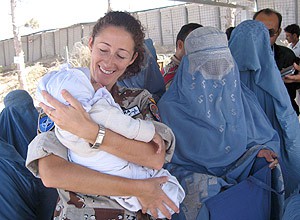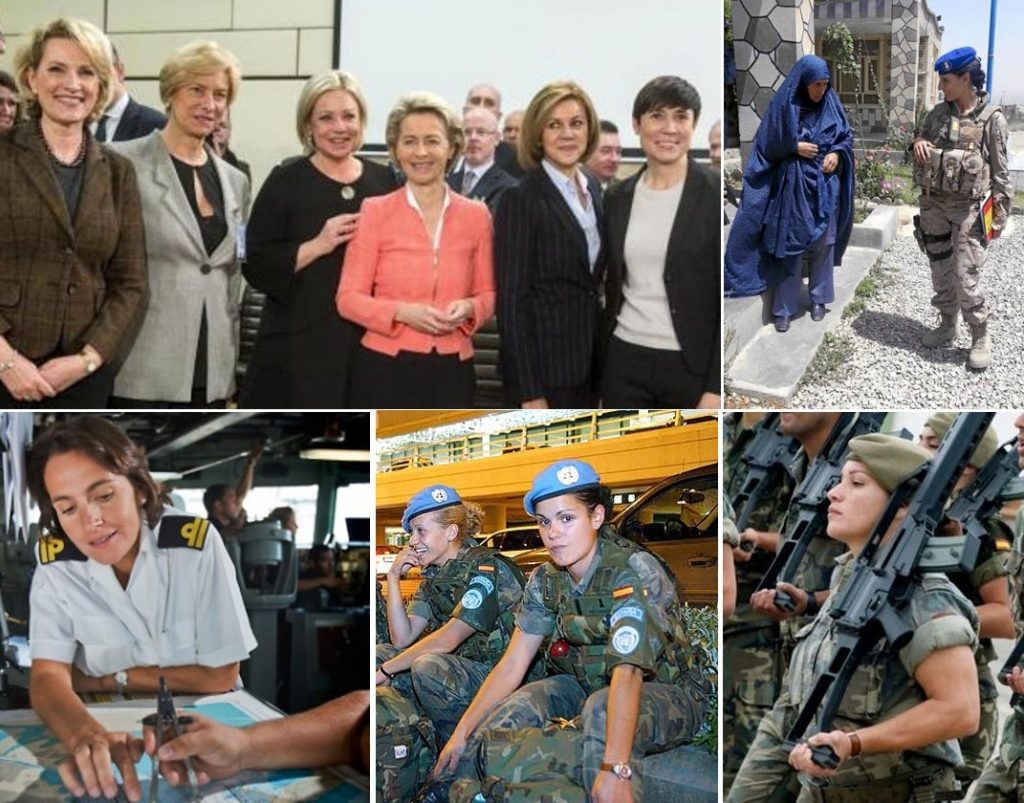The important thing is not “equality” but the mission

More than 30,000 women who integrate the State Security Forces have become in recent years a currency in the search for equality based only on a number, a statistic. That means that the important thing seems to be the parity, to reach the same number of men and women, many times without looking at the necessary tasks they undertake. This is also noticeable in the Defence policy.
In the Armed Forces and the Guardia Civil, more than 15,000 women are part of a world that, until three decades ago, was mostly run by men. Their role is fundamental in the day-to-day work in diverse destinations, from offices to barracks, and especially, in international missions. Precisely, it is here where they acquire an added value that should be highlighted. The female presence is a bulwark for the existing differences (in general terms) they have with men. Their intuitive capacity or empathy, a greater sensitivity and perception of the issues to be addressed, their ability to express themselves and the immense treasure that maternity involves, allows them to reach to women who are part of spaces or environments which are often limited or forbidden for men. The theatres of complex operations and the civic-military cooperation programs succeed not because there is 50% parity, but because there is a complementary team at 100%.
Places like the Middle East or North Africa (Sahel), where women can not easily deal with men, make women’s presence in missions necessary. They are the ones that bring a fundamental approach, offering aid in humanitarian terms (medical, educational …) or in their own tasks for the development of the mission, such as intelligence, security or others, or even obtaining information and perspectives that might be unattainable for men in those cultures. In this way, the chances for the mission to succeed multiply, working hand in hand with men and women, leaving a palpable sign of the need for complementarity.
Women should not be a figure or a percentage, nor should they have a day of the year dedicated to them. The Defence, the homeland or the political community, entail shared attitude and values. Those who give birth and are the soul of a home, also know about tactics and doctrine, about how to hold a weapon, about how to encourage a team or skydive into hostile areas. They have shown that they know how to lead, that they know to come up with ideas and visions for the strategic community, and that they know how to assume responsibilities in international organizations.
Women perform a commendable and essential work day by day, which is complementary to that of their colleagues. These differences, complementary, natural, both physical and affective or psychological, between men and women guarantee the mission entrusted. It is good news that there are women in all Defence fields, assuming their jobs with pride and professionalism.
And let’s not forget the other women who are also part of the mission and who never appear in the photos or on TV. They are those who are in the «rear guard» taking care of the children and the house, who sacrifice their professional aspirations to follow their spouse and keep their family altogether, following them on the different destinations they are sent. They are trained and prepared women, but most of them work as housewives (without salary), and only appear in the photo when a famous politician dismisses or receives a displaced contingent, or when there is a funeral to attend. They, all of them, are part of the mission and make Spain great. The feminism of cabinets, or that of banners and subsidies, will never understand that.
Verónica Domínguez, analyst “Women, Family and Armed Forces”, Master Instituto Universitario Gutiérrez Mellado (IUGM)

Responsibility for the information and views set out in this publication lies entirely with the author.